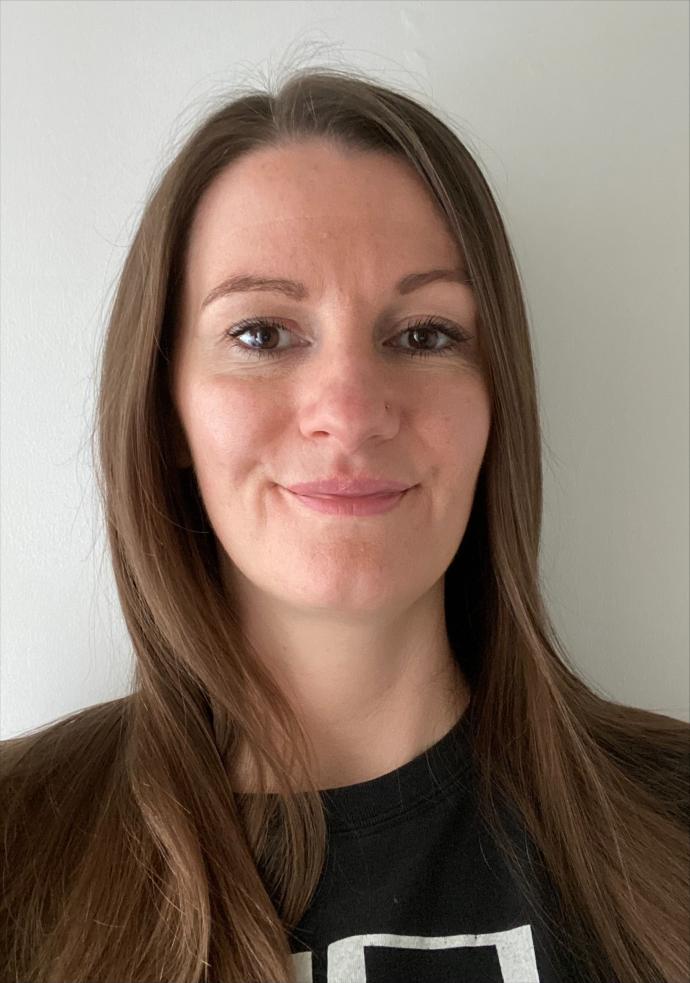Endometriosis Clinical Nurse Specialists play a vital role in improving endometriosis services and supporting those with the disease. As Helen, a volunteer with Endometriosis UK, says: “My clinical nurse specialist is an invaluable member of my treatment team. she makes me feel more secure in living with endometriosis and I trust her vast expanse of knowledge”.
In today’s blog, we interview Jo Hanley, who works part time as an Endometriosis Specialist Nurse with the NHS, and part time as a Specialist Advisor at Endometriosis UK.
Hi Jo, can you tell us what an Endometriosis Clinical Nurse Specialist does in a nutshell?
"An Endometriosis Clinical Nurse Specialist (CNS) has the knowledge and skills to support those with either suspected or confirmed endometriosis in the management of their condition. The CNS aims to increase the awareness of endometriosis, which may involve linking in within other clinical settings, providing resources and training to help healthcare practitioners recognise the symptoms of endometriosis, and creating a better understanding of the condition.
As outlined in the NICE Guidelines, patients who are under the care of an Endometriosis Accredited (Specialist) Centre should have access to a CNS. The Endometriosis CNS is an accessible member of the team, being the initial point of contact of support to patients. They provide expert information, effective communication, advice and psychological support. Depending on their skill set the CNS may have their own nurse led clinics, request investigations, commence treatments, prescribe medications, and provide follow up consultations. They advocate for patient care, work alongside other members of the multidisciplinary team and refer to other specialities when needed. The CNS is heavily involved in the coordination of care both medically and surgically. They make thorough and individualised assessments of their patients, based on symptoms, preferences whilst taking into consideration fertility needs."
What made you decide to become an Endometriosis Clinical Nurse Specialist?
"Since completing my nurse training I’ve always worked with gynaecology. I’m passionate in promoting the importance of menstrual health, specifically endometriosis. Endometriosis effects a population of 1.5 million, it’s still a condition that isn’t always understood and awareness is lacking. As a newly qualified nurse I didn’t fully understand the impact of endometriosis. The more I learnt and the more I cared for patients with endometriosis, the more I appreciated the complex nature of the condition and the importance of the specialist nurse role. This was a career I wished to pursue. I worked alongside a team of consultant gynaecologists who specialised in endometriosis care, the next thing I was part of this team.
Endometriosis is a complex and individualised condition, not all symptoms fit each person and not all treatment options suit each person. Alleviating symptoms with treatment can have a significant impact on a person’s quality of life, to be a part of this journey provides me with great job satisfaction."
And what made you take on the role of Specialist Advisor with Endometriosis UK?
"Endometriosis UK are the leading charity for endometriosis in the UK. The charity is heavily involved in campaigning and promoting awareness of endometriosis to improve care and to make change. I share the same beliefs, everyone with endometriosis should have access to the best available care and their condition should be recognised and understood. I also work as an Advanced Clinical Practitioner within a BSGE Accredited NHS Endometriosis Service. When the position for Endometriosis UK’s Specialist Advisor was advertised, I felt this was the next stage not only for my own development but to support the growth of the charity and the endometriosis community.
As a both an NHS clinician and specialist advisor, I hope to advocate the needs of the endometriosis community nationally, promote advances in treatments and patient care whilst working to increase awareness and reduce diagnosis times."
Finally, what advice would you give someone trying to get a diagnosis of endometriosis?
"See your GP or gynaecologist and don’t be afraid to speak up. The sooner a diagnosis is made, whether it be a confirmed or suspected diagnosis then treatment can be started to help alleviate symptoms. Provide your GP/gynaecologist with as much information about your symptoms as possible. Tracking your periods and symptoms can help identify patterns, which can be a useful tool for doctors and nurses. If you are not having periods or are on contraception, it’s still useful to track symptoms to demonstrate the impact they are having. Our pain and symptoms diary can be an easy way to do this.
Communication is key. Tell your GP or gynaecologist that you think your symptoms could be endometriosis and that you want further investigations and treatment to help control symptoms. If your GP does not feel able to treat you, they should then be referring you to a gynaecologist."


